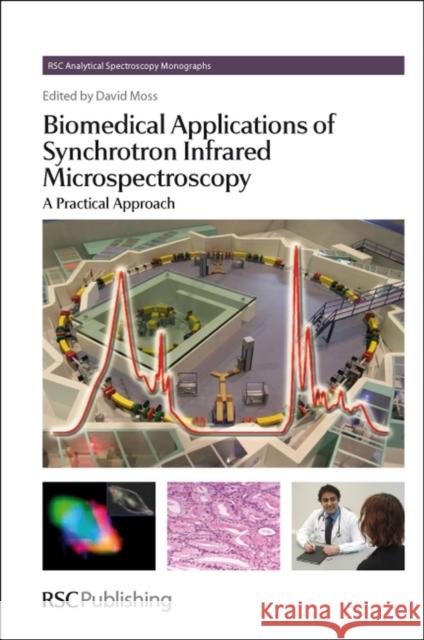Biomedical Applications of Synchrotron Infrared Microspectroscopy » książka
Biomedical Applications of Synchrotron Infrared Microspectroscopy
ISBN-13: 9780854041541 / Angielski / Twarda / 2010 / 400 str.
Publication of a multi-author textbook on the biomedical applications of synchrotron infrared microspectroscopy was a central element in the workplan of the EU project DASIM (Diagnostic Applications of Synchrotron Infrared Microspectroscopy). The project involved nearly 70 scientists and clinicians from 9 European countries, including all synchrotron facilities that have or are planning an infrared beamline. Together with its international associates from the USA, Canada and Australia, the project brought together essentially all recognized experts in the field. The project aims were to coordinate international research effort and to disseminate the relevant information amongst biological researchers and health care professionals and this multi-author textbook was conceived as the most important measure towards the aim of dissemination. The field of biomedical applications of synchrotron IR microspectroscopy, which has recently seen unprecedented growth, is extremely interdisciplinary, involving synchrotron physicists, spectroscopists, biologists and clinicians, with associated difficulties in getting these experts to understand each other. This multi-author book, from leading world experts, presents all aspects of the field in language that all the disparate experts involved can understand. It demystifies the subject both for clinicians and biologists who find synchrotron physics difficult to understand and for physicists who find medical/biological terminology incomprehensible. The book focuses specifically on biomedical IR spectroscopy using synchrotron light sources with particular emphasis on understandable presentation of necessary background knowledge, digestible summaries of research progress and above all as a practical 'how to do it' guide for those working in or wishing to enter the field of biomedical synchrotron IR microspectroscopy and imaging. Key features of the book include: - * a 'Fundamentals' section, explaining the basics of synchrotrons and FTIR spectroscopy as well as the needs of clinicians and biologists with respect to these technologies * a 'Technical Aspects' section, going into depth on optical issues, sample preparation and study design/data analysis * case studies bringing together these 2 elements through practical examples * Raman microspectroscopy, as an alternative approach, is explored in depth * the foreword is written by Henry Mantsch and Gwynn Williams, the two undisputed experts in the fields of biomedical FTIR spectroscopy and synchrotron IR microspectroscopy respectivel











